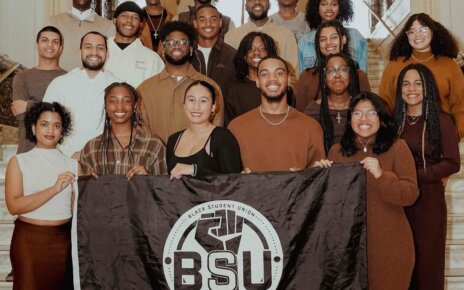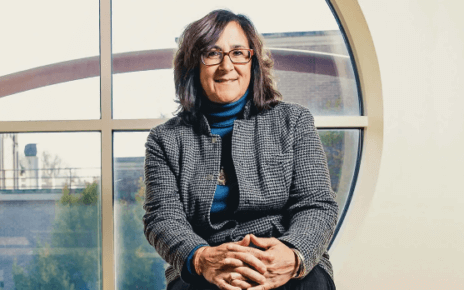The Climate Crisis Teach-In, which allowed students to engage with faculty on topics related to climate change, took place via Zoom from Monday, Oct. 26 to Friday, Oct. 30. Event topics included the basics of ocean acidification, sea-level rise, and greenhouse gases.
Megan Delaney, Ph.D., hosted the event “Eco-Grief and How We can Develop an Ecological Wellness Plan,” which detailed the obstacles in the natural world and surveyed the current situation pertaining to eco-grief, tying together the psychological and societal effects.
The term “Eco-Grief,” Delany explained, refers to the anxiety and the uncertainty that comes with the destruction of our ecological surroundings. Grief that comes from the despair of our changing world through either urban development or the escalation of natural disasters brought on by climate change.
The success of “ecopsychology” is predicated on how well we provide sustainability, Delaney explained. Ecopsychology is a therapeutic technique and ideology that tries to treat people psychologically by bringing them spiritually closer to nature.
“The goal [of ecopsychology] is to bridge our long-standing historical gulf between the psychological and ecological and see the needs of the planet and people on a continuum,” Delaney said. “Activities in nature can address the fact that we are still a part of the natural world.”
Delaney explained further that people do not understand the scientific framework of what is happening around them environmentally speaking, and anything that is seriously threatening to them is chalked up to small incertitudes.
“Research shows that doing activities in nature helps kids in terms of academic engagement and enthusiasm,” Delaney said. “It does enhance critical thinking and improve behavior.”
She believes that factors like these need to be taken into consideration when thinking about us and nature, as Delaney goes on to say that studies show “… nature helps pregnant women with birth weight issues, emotional and social well-being, maintaining healthy eyes, and vitamin D absorption. Nature can take us away from the stimuli of the connected world.”
Sixty-six percent of the world population is projected to live in cities, Delaney said, and with the uncertainty of the future, “… a growing population and the shrinking of land, you know the earth is suffering”
William Schreiber Ph.D., Lecturer and Chair of the Chemistry Department, considers the climate crisis to be the most important issue facing the world because of its threat to all life on the planet. “I was proud to be a contributor [to the teach-in] both last year and this year by explaining the physical and chemical bases of the greenhouse effect,” Schreiber said.
Catherine Duckett, Ph.D., Associate Dean of the School of Science, considers this year’s Climate Crisis teach-in to be the outgrowth of last year’s teach-in, which she organized on the day of an international climate strike.
The Climate Crisis teach-in was the outgrowth of last year’s teach in which I organized on a day of an international climate strike. “Monmouth Faculty do not strike, but 16 faculty last year presented at the teach-in,” Duckett explained. “This year, a small group of us, including.Heide Estes, Ph.D., of [the English department], Randall Abate, Ph.D., of the Political Science [department] and Professor Kimberly Callas of [the Art department] felt that we should have a larger teach-in that included more people and that it should be more than one day. We organized focus groups and faculty volunteered to present and some invited their students to present.”
Forty different people presented 29 unique presentations and one faculty roundtable, Duckett said. More than 250 different people attended, many attending two or more sessions. The best attended sessions were the Poetry presentation “World on Fire” organized by Professor Deanna Shoemaker and the Friday afternoon student presentations organized by Randall Abate, Ph.D., with upwards of 35 attendees each.
“Climate change is the problem that is going to be the most expensive, stress producing and damaging in the lifetimes of most students,” Duckett said, “That right there is reason enough for students to study it and for the University to sponsor events about climate change.”
Climate change is happening at a rate faster than most biological organisms can adjust or adapt to, which means that agricultural, fisheries and forestry systems are going to be disrupted, Duckett explained. “Climate change is already causing migrations of people that are disrupting societies and promoting international violence.”
Duckett and the other organizers would like to hear from students about what they want in the next Climate Crisis Teach-In, she said. “The climate crisis is not going away and society needs climate mediated problems solved, how can I as a faculty organizer help faculty meet student informational needs.”
IMAGE TAKEN from Pexels.com




